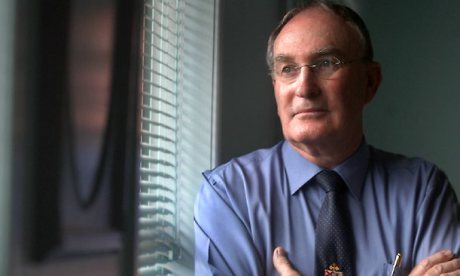Australian Bishop William Morris is among the signatories to a letter calling for a new process for theological investigations by the Church.
An international group of bishops, nuns, priests and lay people have written to Pope Francis calling for reform.
They have specifically called for an end to anonymous denunciations.
Many of the letter’s signatories have been the subjects of investigations by the Congregation for the Doctrine of the Faith and some have subsequently lost their positions.
The 15 signatories include Australian Bishop Patrick Power, theologian Fr Charles Curran and Irish Redemptorist Fr Tony Flannery.
The letter was also sent to CDF prefect Cardinal Gerhard Muller.
The signatories argue as the CDF acts as “investigator, accuser, judge and jury” the process cannot offer justice
They state that the procedures are characterised often by a lack of adequate defence or possibility of appeal.
The writers state that current norms are outdated and follow a model based on “the absolutism of sixteenth and seventeenth century Europe”.
The letter-writers propose propose eight principles that should be followed in any Vatican investigation of a theologian.
They centre on requests for an open process, marked by opportunities for theologians to respond to allegations made against them.
The writers’ also mention that often in investigations a theologian’s work is taken out of context and call for involvement of those being investigated “from the beginning” to help clarify any issues immediately.
The signatories also propose a new procedure for investigations, moving final responsibility for the matter to the Vatican’s office for the Synod of Bishops.
They envision that such a procedure would take place in two steps: First, with a limited investigation at the doctrinal office; and then, if necessary, through a seven-member expert committee set up by the synod office.
Four of the committee members would be appointed by the Vatican; three by the theologian in question.
Within six months of the start of the investigation, they suggest that the committee would outline a “process of reconciliation” between the theologian and the universal Church.
The letter was sent in March, but thus far there has been no formal notice of receipt by the Vatican.
Sources
